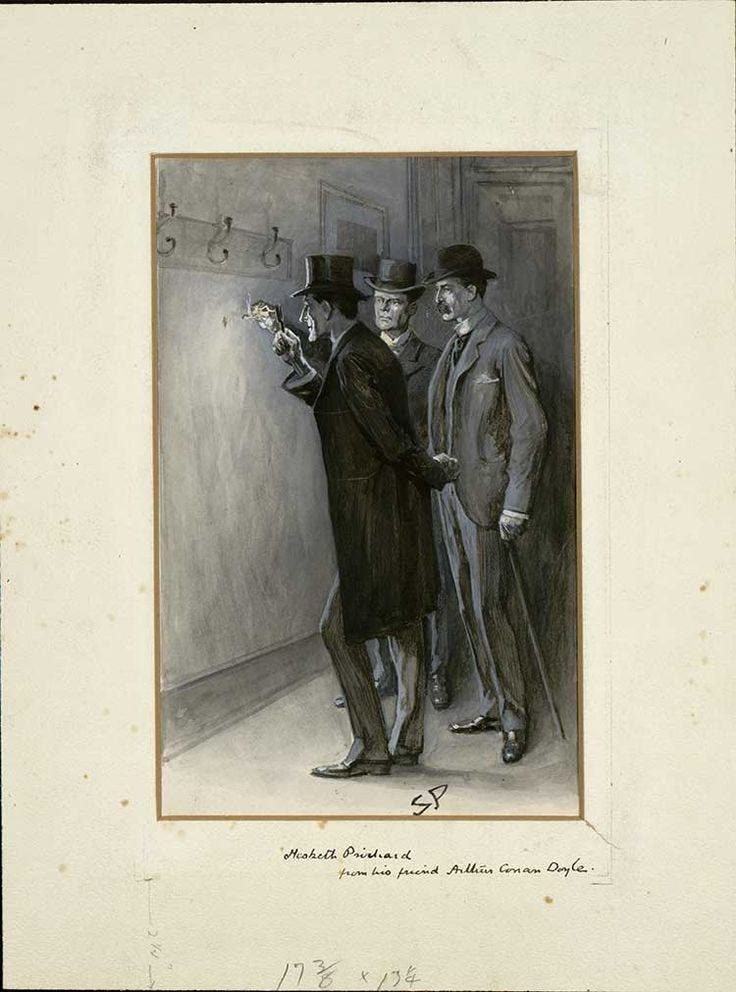There is the scarlet thread of [murder] running through the colourless skein of life, and our duty is to unravel it, and isolate it, and expose every inch of it.
Arthur Conan Doyle, A Study in Scarlet
I have told you why I write. Now I want to tell you why you should write.
The quote above from Sherlock Holmes in A Study In Scarlet—if you exclude “murder” from it—represents what we do when we write.
Ask different people what writing is to them. You will get different responses: sharing your knowledge being a prominent one. But this just works to dumbfound us. For nothing stares at us more scornfully than the fact of our ignorance. That taunting feeling we call writer’s block is nothing but the fear of our ignorance—the fear of placing the wrong item on paper. The one way to render this fear powerless is to change how you think about writing.
Defining writing then as clear thinking saves you from the horror of staring at your ignorance. Thinking of writing as a discovery process brings relief.
You have no better reason to write than the need to ascertain your knowledge or ignorance. There is no better reason to write than to unravel the scarlet thread of ideas; to isolate and expose every inch of it.
Just as you are proud of your knowledge, it is also good for you to be confident in your ignorance. When you quickly pour fifty words to explain what you think you know, and you become stuck, you have no need to be afraid. You just take this as a sign that you don’t know that subject well enough. It exposes your ignorance. There is only one thing to do: more research. Is this not a good thing?
Everything you write is proof of your knowledge or ignorance. This way, you always win. You either relish your knowledge or expose your ignorance.
Steve Jobs says that you cannot connect the dots looking forward. You only connect them backwards. The same is true with working out your ideas.
When you read, you note the facts or the events. When you write, you trace the scarlet thread through them.
Writing is a type of reflection. Edmund Burke remarked, “Reading without reflecting is like eating without digesting.” When you read without writing, you constipate with ideas.
As I look back at all the essays I have written, I see like Holmes, a theme running through them like a scarlet thread. Themes like curiosity, agency, and thrill-seeking. Poor as the writing itself is, they are not altogether empty. A common theme bobs up in them over time. This is peak discovery.
Write to discover the things that you do not know that you know.
Write to compose the things you know.
Write to expose your ignorance. Or someone else might do it for you; embarrassing you while at it.
Write to trace the scarlet thread running through the colourless skein of all your reading and conversations.
Writing is to your knowledge what physical exercise is to your diet.
Write to connect the dots.
Write on whatever delights you right now and look backwards to see what is common to them.
And finally, on writing, Sir Scruton—my idol philosopher—speaks from the grave:
You can exercise your mind effectively through reading and listening to music. But if you wish to exercise it freely, then you need the medium of expression that will provide the joints and tendons that hold a thought together and allow it to stand on its own. Through writing, a thought loses its vague and aspirational quality, and stands fully clothed in imagery and nuances, a representation not only of the facts that inspired it but also of the person who gave voice to it.
Write.
Here of course is your meme: The trolley problem solved






Writing as a means to clarify my thinking is something I've found as one of my motives yet I've never drawn the connection that writer's block is an indicator I've deviated from this motive. Great essay